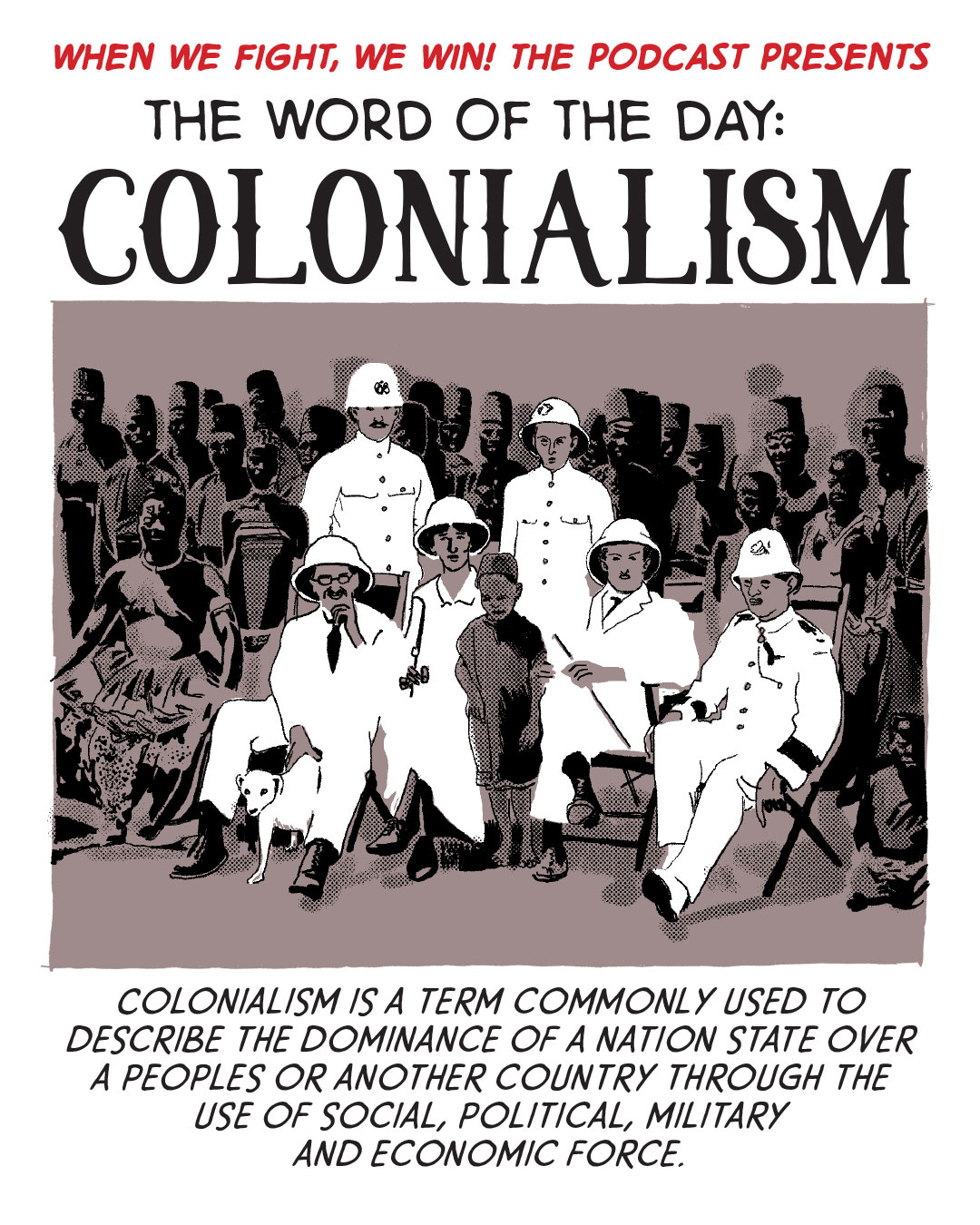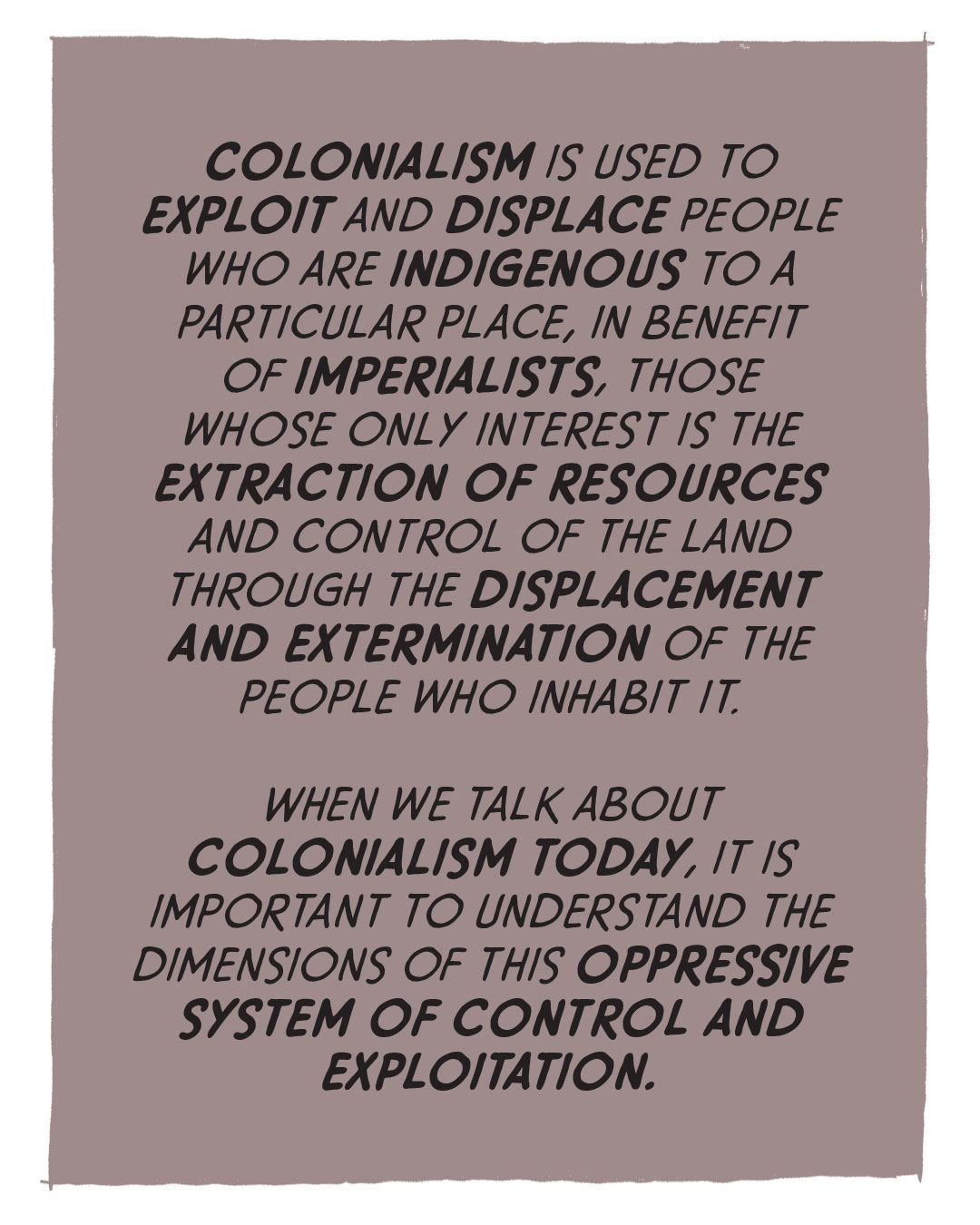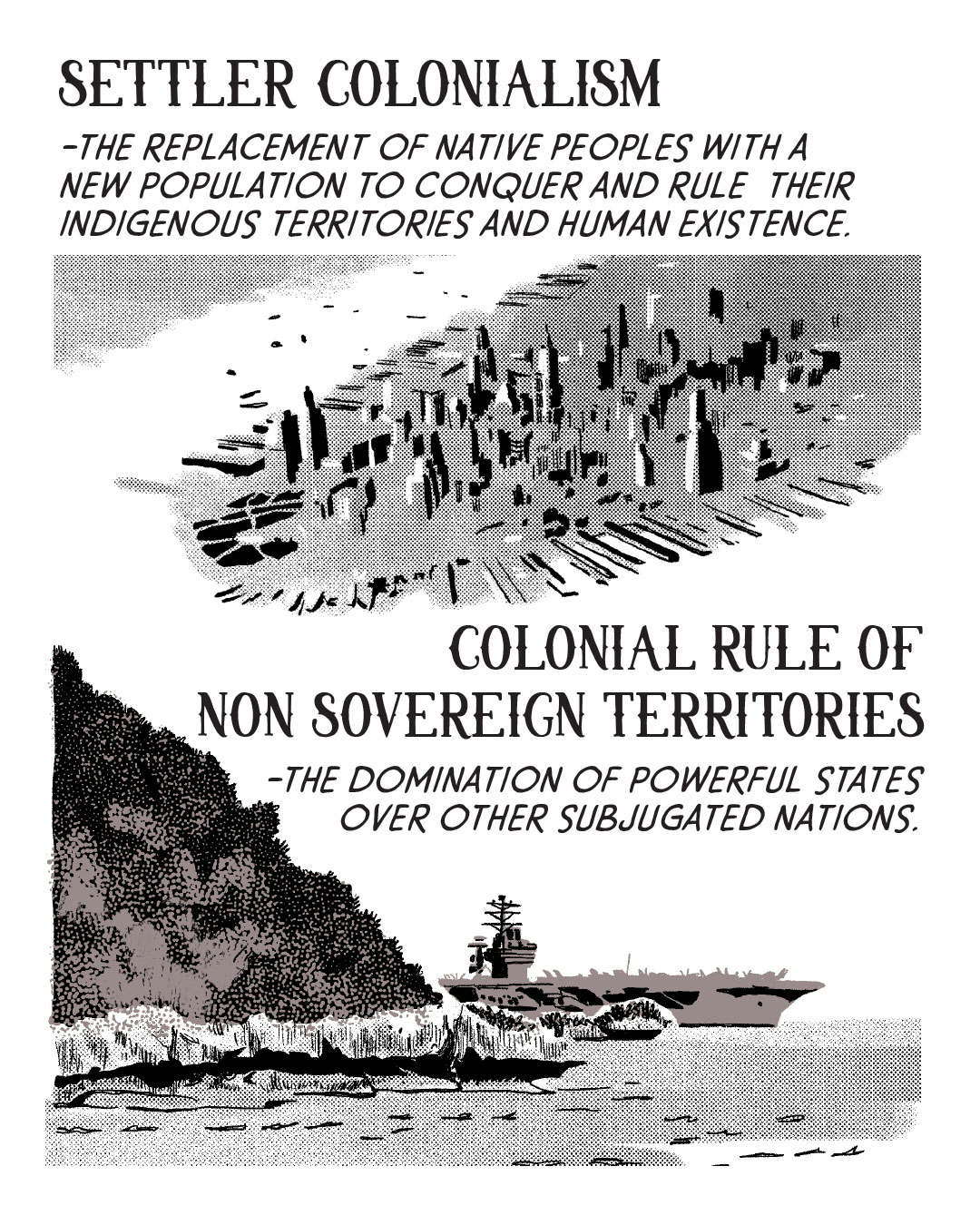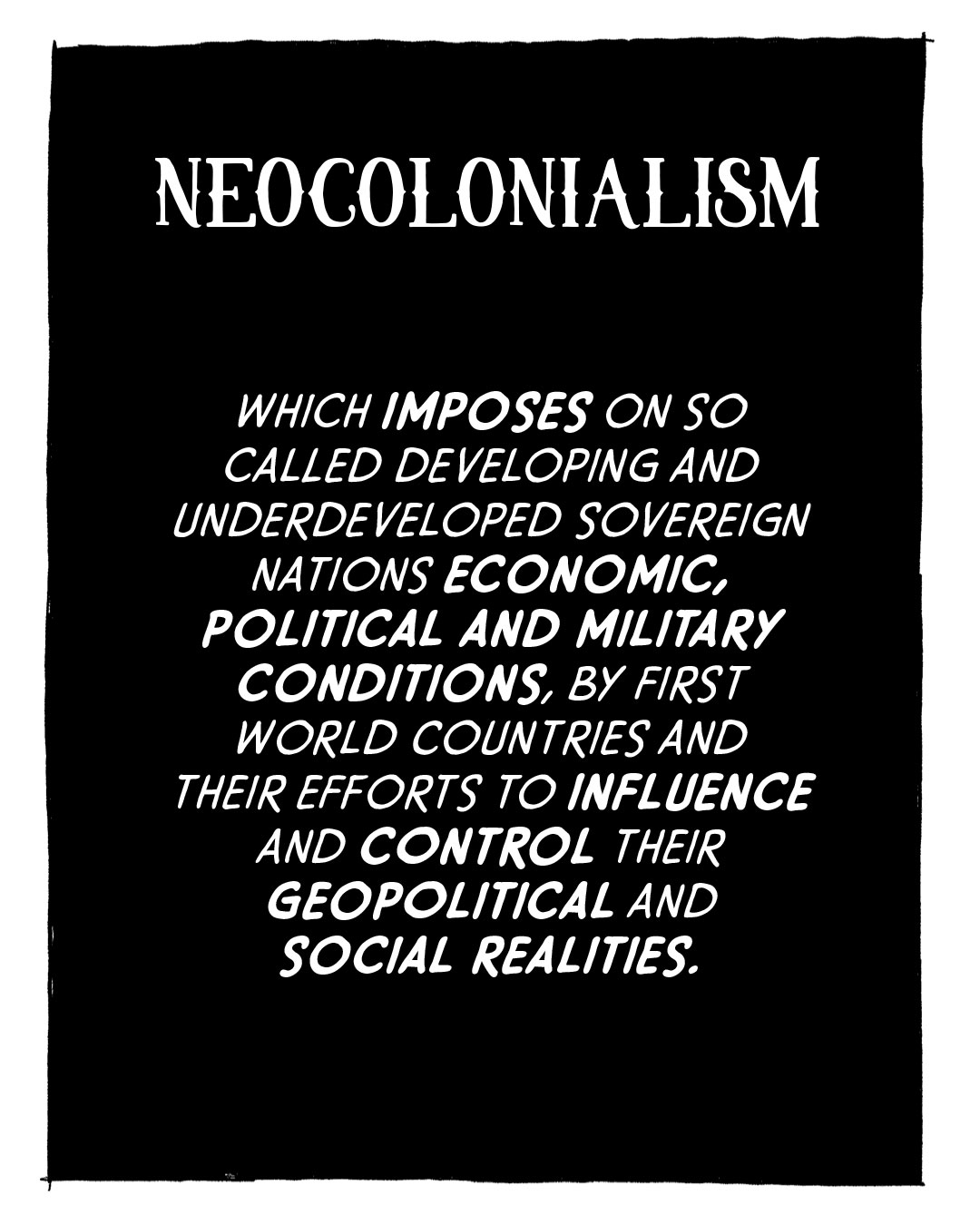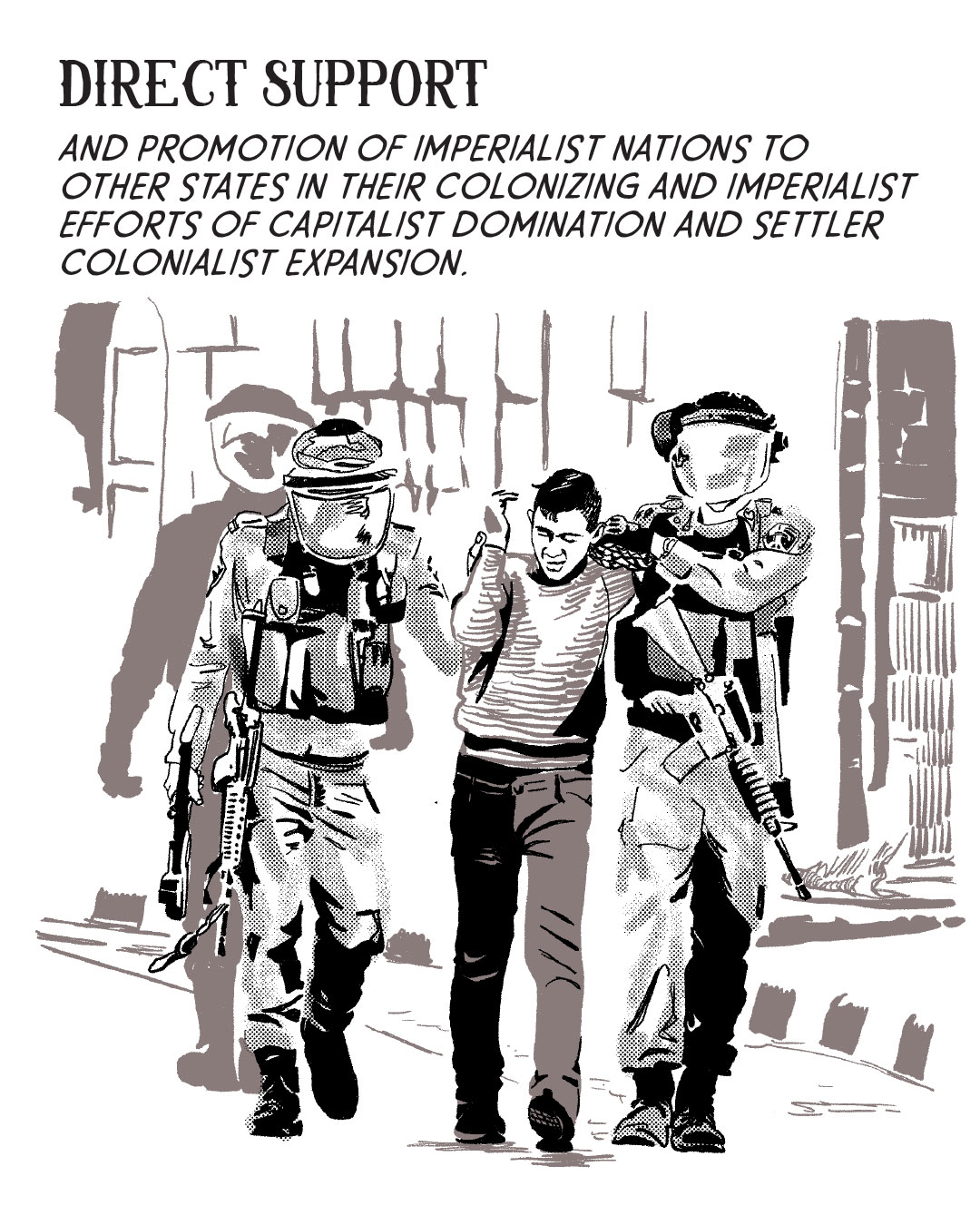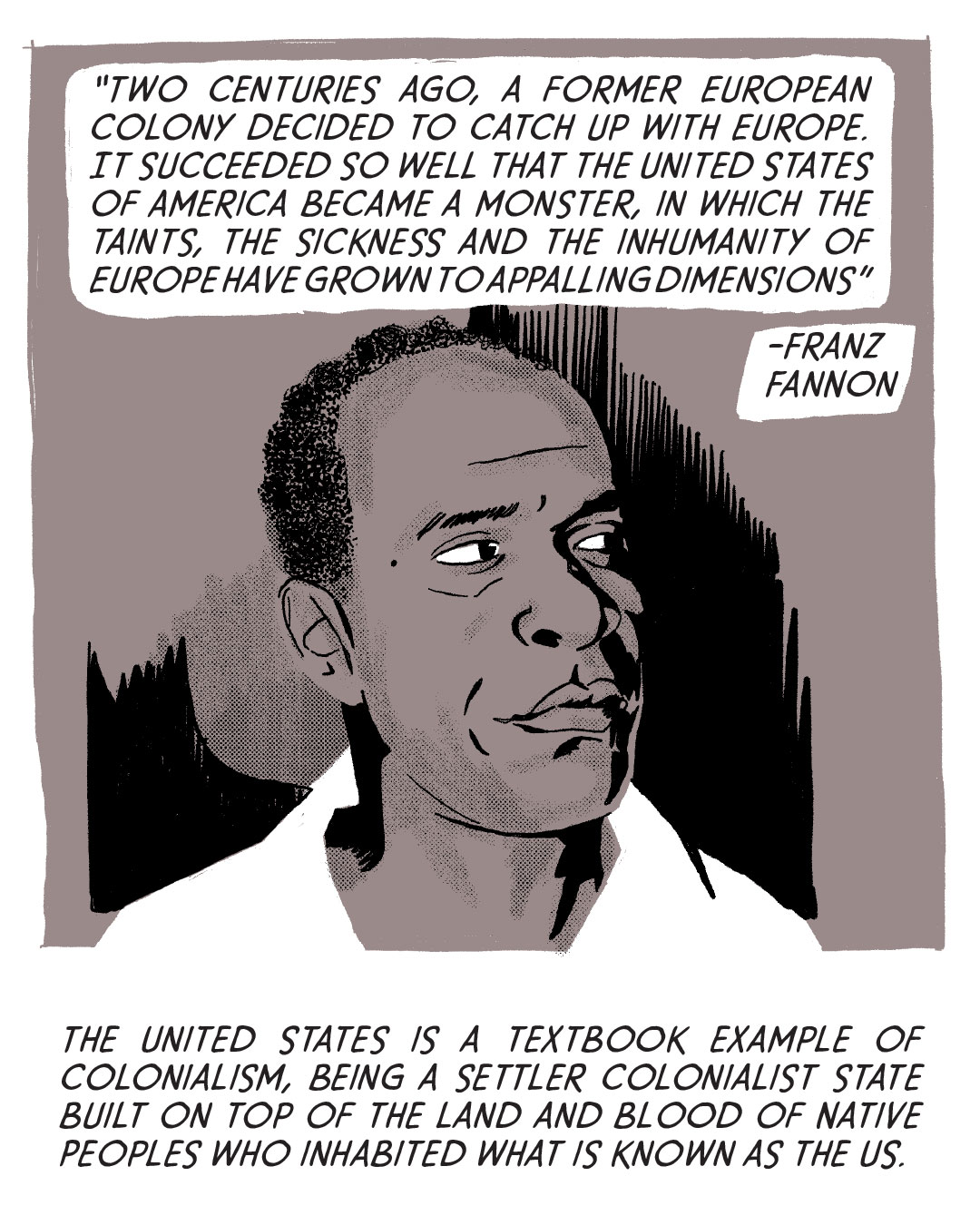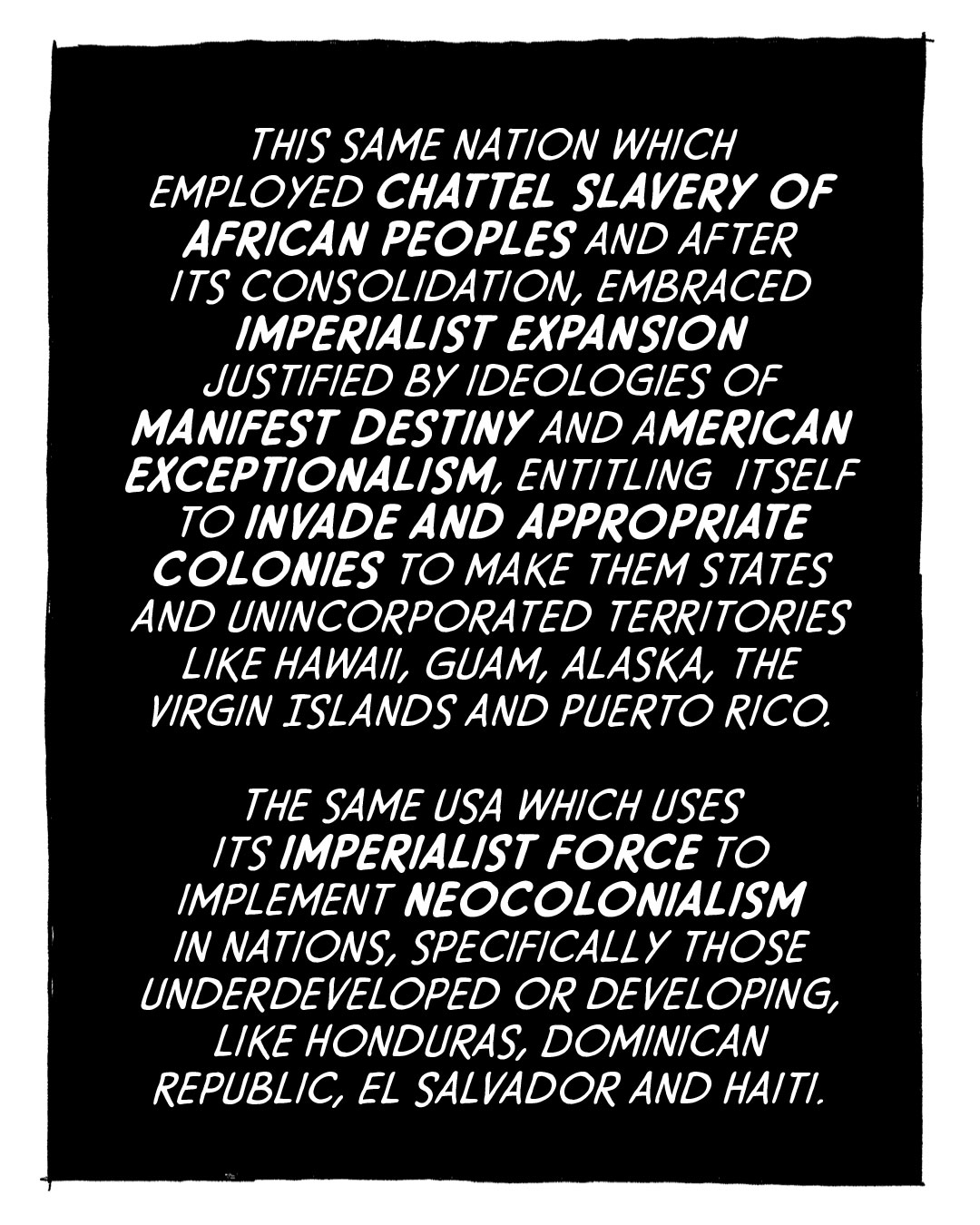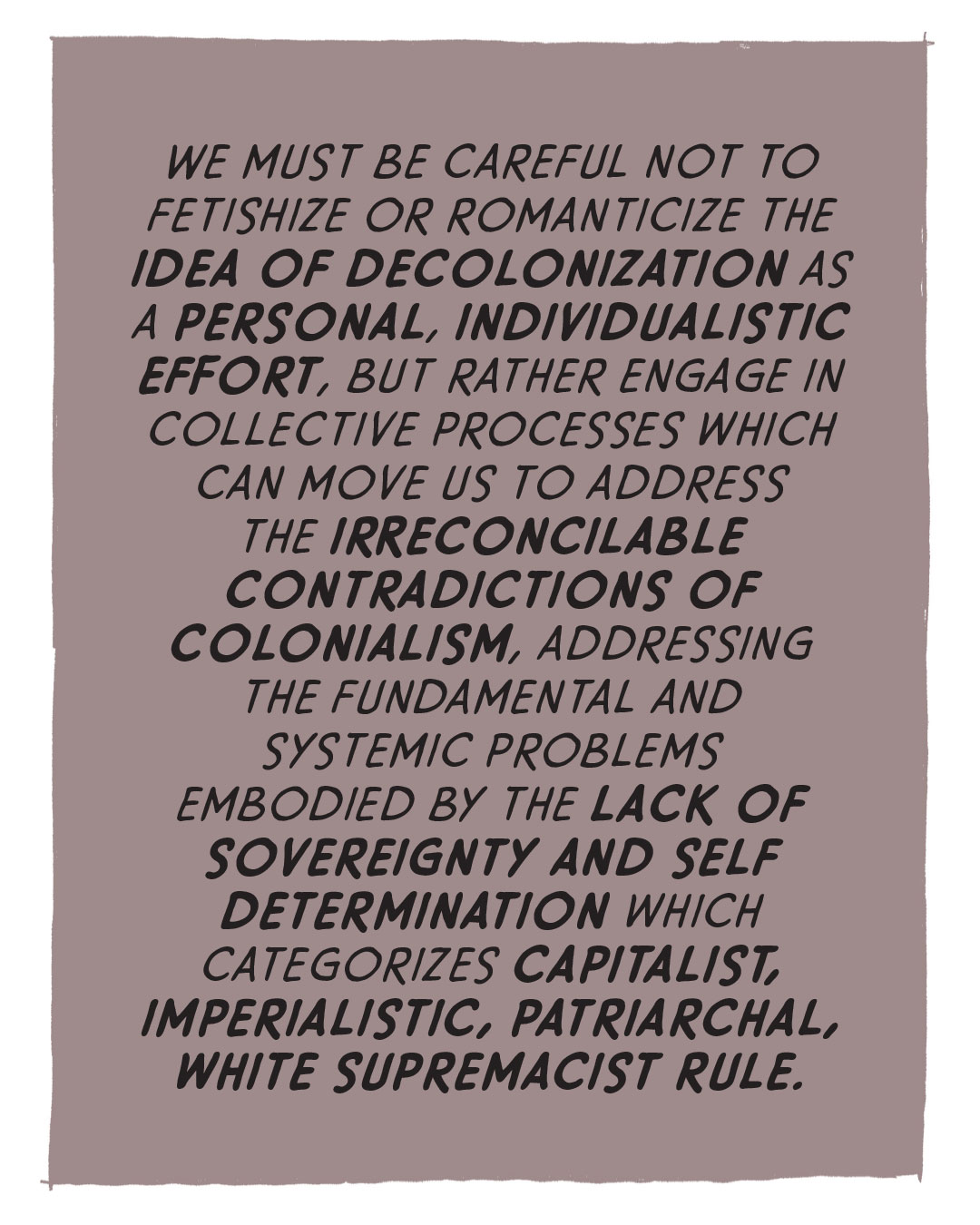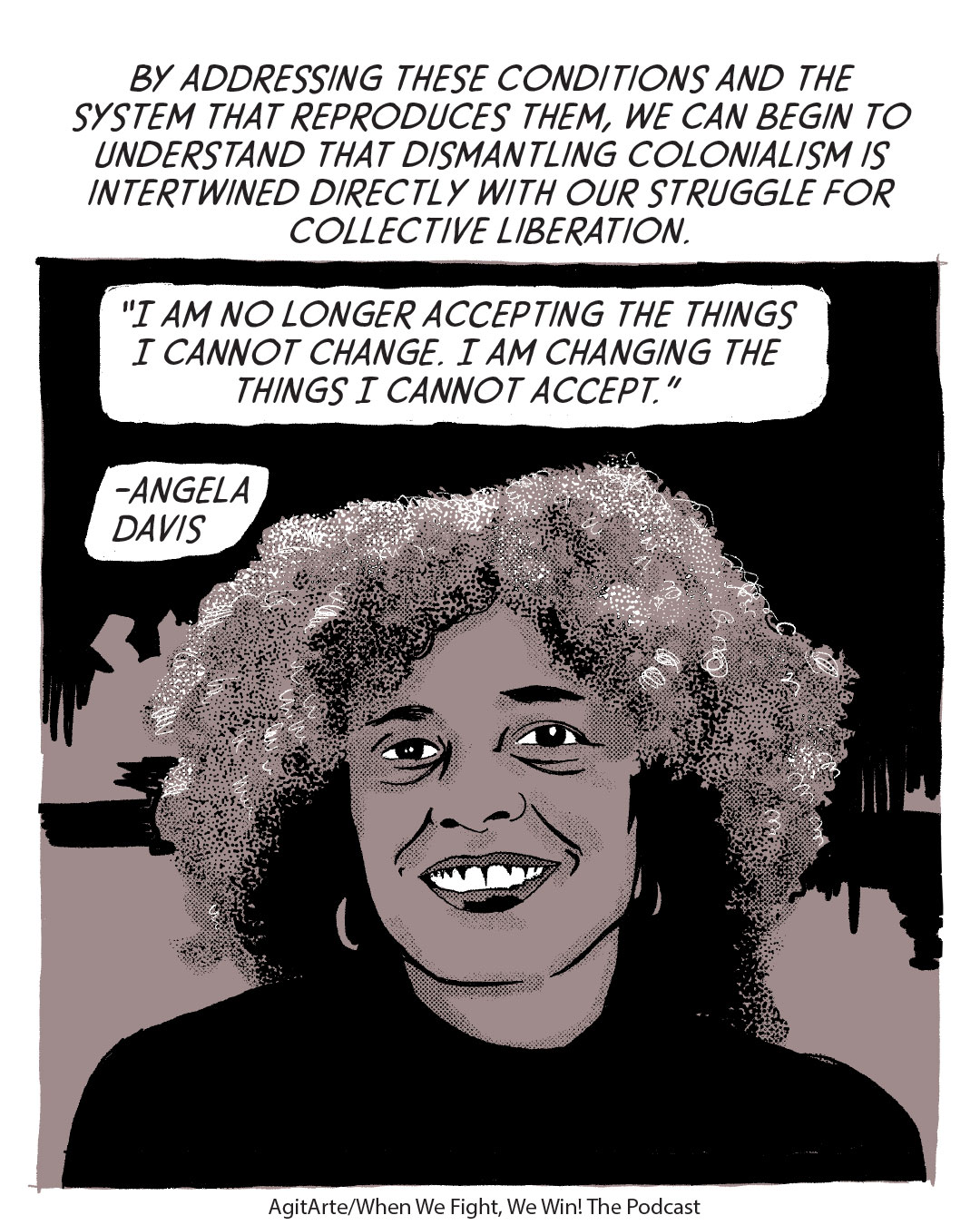Word of the Day by Jorge Díaz Ortiz
COLONIALISM
Word of the Day by Jorge Díaz Ortiz
Colonialism is a term commonly used to describe the dominance of a nation state over a peoples or another country, through the use of social, political, military, and economic force. Colonialism is used to exploit and displace peoples who are Indigenous to a particular place in benefit of imperialists, those whose own interest is the extraction of resources and control of the land through the displacement and extermination of the people who inhabit it.
When we talk about colonialism today, it is important to understand the dimensions of this oppressive system of control and exploitation. First, we need to mention settler colonialism, the replacement of native peoples with a new population to conquer and rule their Indigenous territories and human existence. Also, we need to talk about the colonial rule of non-sovereign territories, the domination of powerful states over the subjugated nations. Thirdly, the phenomenon of neocolonialism, which imposes on so-called developing and underdeveloped sovereign nations economic, political, and military conditions by first-world countries and their efforts to influence and control their geopolitical and social realities. And last but not least, the direct support and promotion of imperialist nations to other states in their colonizing and imperialist efforts of capitalist domination and settler colonialist expansion.
One of the greatest radical organic intellectuals, the psychiatrist, Pan-Africanist, philosopher, and humanist, Marxist from Martinique, Frantz Fanon, states in regard to the greatest colonial power of our times, and I quote: “Two centuries ago, a former European colony decided to catch up with Europe. It succeeded so well, that the United States of America became a monster in which the taints, the sickness, and the inhumanity of Europe have grown to appalling dimensions.” End quote.
The United States is a textbook example of colonialism. Being a settler colonialist state, built on top of the land and blood of native peoples who inhabited what is known as the U.S. mainland. This same nation, which employed chattel slavery of African peoples and after its consolidation embraced imperialist expansion, justified by ideologies of Manifest Destiny and American exceptionalism, entitling itself to invade and appropriate colonies and make them states and unincorporated territories like Hawaii, Guam, Alaska, the Virgin Islands, and Puerto Rico.
The same United States, which uses its imperialist force to implement neocolonialism in nations, specifically those underdeveloped or developing like Honduras, the Dominican Republic, El Salvador, and Haiti. Lastly, the United States promotes and supports other settler colonialist and imperialist states like Israel in their efforts to replicate the same genocidal and extractive efforts, which mirror this country’s history. Lately, there are philosophical and practical attempts to address the effects of colonization on a personal and social level, with the concept of decolonization.
Like many efforts co-opted and trivialized by liberals, we must be careful not to fetishize or romanticize the idea of decolonization as a personal, individualistic effort. But rather, engage in collective processes which can move us to address the irreconcilable contradictions of colonialism with a practice that is geared to address the fundamental and systemic problems embodied by the lack of sovereignty and self-determination, which categorizes capitalist, imperialist, patriarchal, white supremacists’ rule.
By addressing these conditions and the system that reproduces them, we can begin to understand that dismantling colonialism is intertwined directly with our struggle for collective liberation. As revolutionary professor and philosopher Angela Davis clearly states in her Expressions of Love and Struggle, and I quote, “I am no longer accepting the things I cannot change. I am changing the things I cannot accept.” End of quote. In essence, decolonization is the ongoing practice of embracing a transformation of reality, which guarantees that when we fight for our own humanity in principle struggle and with revolutionary ethics for our collective liberation, we win.

